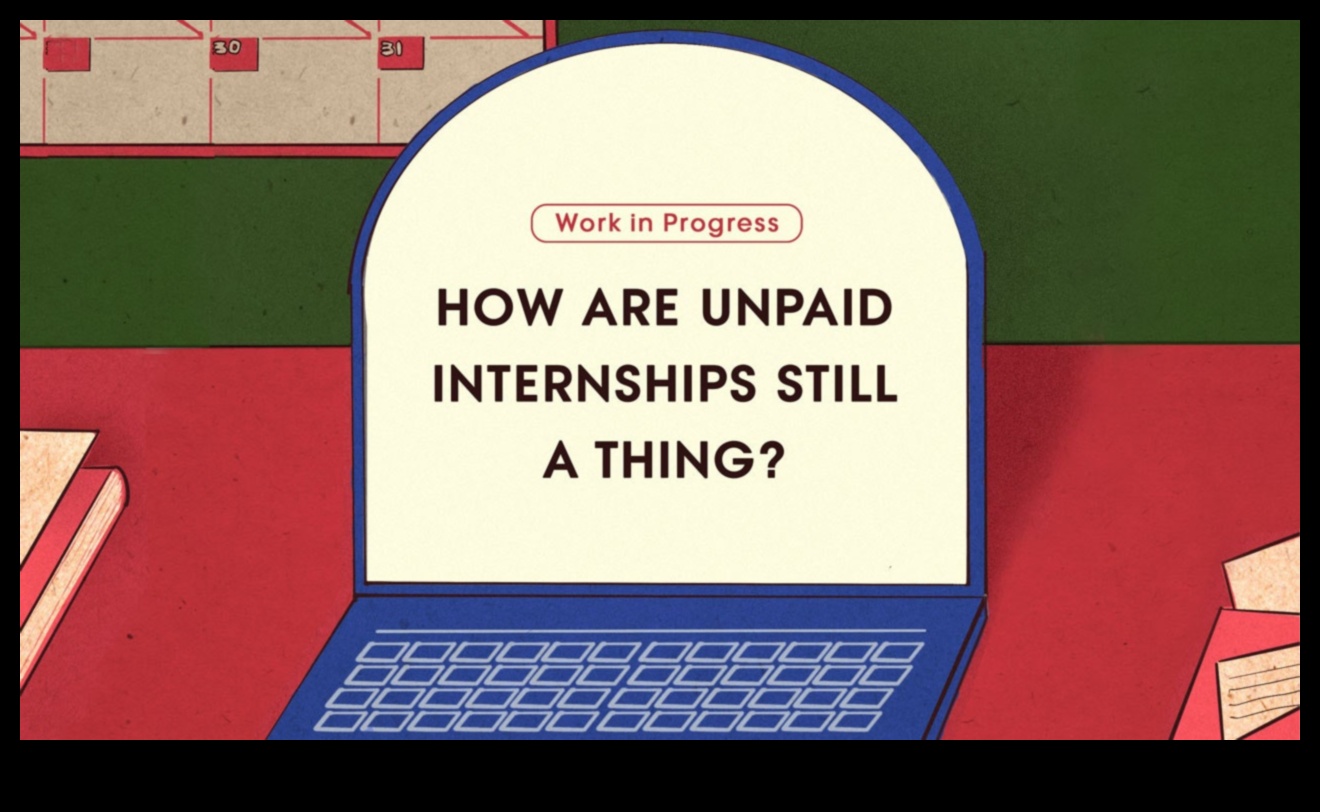
1. Introduction
2. What is the average pay for an intern?
3. Factors that affect intern pay
4. How to negotiate your internship pay
5. Benefits of getting paid for your internship
6. How to find paid internships
7. FAQ about internship pay
8. Conclusion
| Topic | Answer |
|---|---|
| Internship benefits |
* Gain valuable experience * Network with professionals * Get a foot in the door of your desired industry * Learn about different career paths * Develop your skills * Get paid |
| Internship experience |
* Can be challenging and demanding * May require long hours * May not be paid * May not lead to a job offer |
| Unpaid internship |
* Can be a good way to get experience * May not lead to a job offer * May not be worth the time and effort |
| Worth internship |
* Depends on the individual’s circumstances * Consider the benefits and drawbacks carefully * Make sure you are getting something out of the internship |

What is the average pay for an intern?
The average pay for an intern varies depending on the industry, location, and company. In general, interns can expect to earn between $10 and $20 per hour. However, some internships may pay more or less, depending on the specific position and company.
Here are some factors that can affect the pay for an internship:
- Industry: Interns in high-paying industries, such as finance and consulting, typically earn more than interns in low-paying industries, such as retail and food service.
- Location: Interns in major cities typically earn more than interns in smaller cities or rural areas.
- Company: Interns at large companies typically earn more than interns at small companies.
3. Factors that affect intern pay
There are a number of factors that can affect the pay for an internship, including:
- The industry in which the internship is located
- The size of the company
- The location of the internship
- The level of experience required for the internship
- The availability of funding for the internship
It is important to keep these factors in mind when negotiating your internship pay. If you are offered an internship that is unpaid or does not meet your expectations, you may want to consider negotiating for a higher salary or additional benefits, such as housing or transportation.
4. How to negotiate your internship pay
When it comes to negotiating your internship pay, it’s important to be realistic about your expectations. The average pay for an intern is \$15.50 per hour, but this can vary depending on the industry, location, and company. If you’re interning at a large, well-known company, you can expect to earn more than if you’re interning at a small, local company. You should also consider the cost of living in the area where you’re interning. If the cost of living is high, you’ll need to ask for a higher salary to make ends meet.
When you’re negotiating your internship pay, it’s important to be prepared. Do your research and find out what the average pay is for interns in your field. You should also have a good understanding of your skills and experience. If you’re a highly qualified intern with a lot of experience, you’ll be in a better position to negotiate a higher salary.
When you’re negotiating your internship pay, it’s also important to be confident. Don’t be afraid to ask for what you want. The worst that can happen is that they say no. However, if you don’t ask, you’ll never know.
Here are a few tips for negotiating your internship pay:
- Do your research and find out what the average pay is for interns in your field.
- Have a good understanding of your skills and experience.
- Be prepared to negotiate.
- Be confident and don’t be afraid to ask for what you want.
By following these tips, you can increase your chances of getting the pay you deserve for your internship.
5. Benefits of getting paid for your internship
There are many benefits to getting paid for your internship, including:
- You will be able to support yourself financially while you are interning.
- You will be more motivated to work hard and produce high-quality work.
- You will be treated more like a full-time employee, which can give you valuable experience in a professional setting.
- You will be more likely to get a job offer after your internship, as employers are more likely to hire interns who have been paid.
If you are considering an unpaid internship, it is important to weigh the benefits of getting paid against the benefits of gaining valuable experience. If you are able to find a paid internship, it is likely to be a more rewarding experience overall.

6. How to find paid internships
There are a few different ways to find paid internships. Here are a few tips:
Network with your friends, family, and professors. Ask them if they know of any paid internships that are available. They may be able to put you in touch with someone who is hiring or can give you some advice on how to find a paid internship.
Search online job boards. There are many online job boards that list paid internships. Some popular job boards include Indeed, Monster, and CareerBuilder.
Contact companies directly. Visit the websites of companies that you are interested in working for and see if they have any paid internships listed. You can also send a cold email to the hiring manager or recruiter at the company to inquire about paid internship opportunities.
Attend career fairs. Career fairs are a great way to meet with employers and learn about their internship opportunities. You can also use career fairs to network with potential employers and get your resume in front of them.
Once you have found a few paid internships that you are interested in, it is important to apply for them as soon as possible. The sooner you apply, the more likely you are to be considered for the internship.
When you are applying for paid internships, it is important to make sure that you highlight your skills and experience that are relevant to the internship. You should also tailor your resume and cover letter to each individual internship that you apply for.
It is also important to be prepared for the interview process. Practice answering common interview questions and dress professionally for the interview. If you are offered an internship, be sure to negotiate your salary and benefits.
Finding a paid internship can be challenging, but it is definitely worth it. Paid internships can provide you with valuable experience, networking opportunities, and a chance to earn money while you are in school.
FAQ about internship pay
Here are some frequently asked questions about internship pay:
-
What is the minimum wage for interns?
-
Do I have to be paid for my internship?
-
Can I negotiate my internship pay?
-
What are the benefits of getting paid for my internship?
-
How can I find paid internships?
For more information on internship pay, please see our internship pay guide.

Conclusion
Internships can be a valuable way to gain experience and learn about a career field. However, it is important to weigh the pros and cons of unpaid internships before you decide if one is right for you. If you are considering an unpaid internship, be sure to do your research and make sure that the internship is a good fit for your skills and interests. You should also be prepared to negotiate your pay and benefits.
There is no one-size-fits-all answer to the question of whether or not an unpaid internship is worth it. The decision of whether or not to accept an unpaid internship depends on a number of factors, including your financial situation, your career goals, and the specific internship opportunity.
Here are some things to consider when making your decision:
- Your financial situation. If you are struggling to make ends meet, an unpaid internship may not be the best option for you. You will need to consider the cost of living in the area where the internship is located, as well as the cost of transportation and other expenses.
- Your career goals. If you are interested in a career in a particular field, an unpaid internship can be a great way to get your foot in the door. You will have the opportunity to learn about the industry, network with professionals, and gain valuable experience.
- The specific internship opportunity. Not all unpaid internships are created equal. Some internships are more valuable than others, depending on the company, the role, and the opportunities for learning and growth.
If you decide to pursue an unpaid internship, there are a few things you can do to make the most of your experience:
- Be proactive. Don’t just wait for things to happen. Take the initiative to learn as much as you can and to get involved in the company.
- Network. Make the most of your time at the internship by networking with professionals in your field. This will help you build relationships that can benefit you in your future career.
- Be prepared to work hard. Unpaid internships are not easy. You will be expected to work long hours and to do your best work.
Ultimately, the decision of whether or not to accept an unpaid internship is a personal one. There is no right or wrong answer. However, by carefully considering the factors discussed above, you can make an informed decision that is right for you.
FAQ about internship pay
Q: What is the average pay for an intern?
A: The average pay for an intern is \$15.72 per hour, according to a survey by Glassdoor. However, the actual pay for an intern can vary significantly depending on the industry, the company, and the intern’s level of experience.
Q: What factors affect intern pay?
The following factors can affect intern pay:
- Industry: Interns in high-paying industries, such as finance and consulting, typically earn more than interns in low-paying industries, such as retail and food service.
- Company size: Interns at large companies typically earn more than interns at small companies.
- Intern’s level of experience: Interns with more experience typically earn more than interns with less experience.
Q: How to negotiate your internship pay?
If you are offered an internship, you may be able to negotiate your pay. Here are a few tips for negotiating your internship pay:
- Do your research and find out what the average pay is for interns in your field.
- Be confident and assertive when you negotiate.
- Be prepared to walk away from the internship if you are not offered a fair wage.